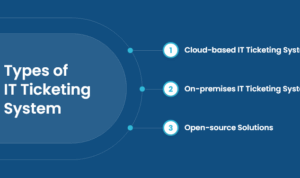As hr help desk ticketing system takes center stage, this opening passage beckons readers into a world crafted with good knowledge, ensuring a reading experience that is both absorbing and distinctly original.
The HR help desk ticketing system serves as a vital tool for enhancing employee experience and streamlining support processes. By organizing requests and facilitating communication between HR and staff, this system not only improves response times but also fosters a more efficient workplace environment. With the growing complexity of HR functions, a dedicated ticketing system can make a significant difference in how issues are managed, ultimately leading to higher employee satisfaction and productivity.
In recent years, the concept of sustainable living has gained significant traction. More than just a trend, it represents a fundamental shift in how individuals and communities approach their relationship with the planet. This article delves into the various dimensions of sustainable living, its importance, practical steps one can take, and how it fosters a harmonious balance between human needs and environmental stewardship.

Understanding Sustainable Living
Sustainable living is defined as a lifestyle that aims to minimize an individual’s or society’s use of the Earth’s natural resources. It encompasses various practices and choices that reduce one’s carbon footprint, promote environmental health, and ensure that future generations can thrive. The core principle revolves around the idea of meeting present needs without compromising the ability of future generations to meet theirs.
The Importance of Sustainability
As the world grapples with the effects of climate change, resource depletion, and environmental degradation, the importance of sustainable living cannot be overstated. Here are a few key reasons why sustainability is critical:
- Environmental Protection: Sustainable practices help preserve ecosystems, protect biodiversity, and reduce pollution. By making conscious choices, we can help reverse some of the damage inflicted on the planet.
- Resource Conservation: Our natural resources are finite. Sustainable living encourages the responsible use of resources, ensuring that they are available for future generations.
- Economic Viability: Many sustainable practices can lead to cost savings. For instance, energy-efficient appliances and renewable energy sources can significantly lower utility bills.
- Health Benefits: A sustainable lifestyle often promotes healthier living conditions. Reducing pollution and consuming organic, locally-sourced food can lead to improved health outcomes.
Practical Steps Towards Sustainable Living
Transitioning to a sustainable lifestyle may seem daunting, but small changes can lead to significant impacts. Here are several actionable steps you can take:
1. Reduce, Reuse, Recycle
The three R’s are fundamental to sustainability. Aim to reduce waste by purchasing only what you need. Reuse items when possible, and recycle materials to keep them out of landfills.

2. Conserve Energy
Energy conservation is crucial. Switch to energy-efficient appliances, use LED lighting, and practice habits such as turning off lights when leaving a room. Additionally, consider renewable energy sources like solar panels to power your home.
3. Sustainable Transportation
Transportation contributes significantly to greenhouse gas emissions. Opt for public transportation, bike, walk, or carpool whenever possible. If you must drive, consider fuel-efficient or electric vehicles.
4. Embrace Local and Organic Foods
Supporting local farmers and choosing organic products can reduce your carbon footprint. Local foods require less transportation, while organic farming practices typically use fewer harmful chemicals.
5. Water Conservation
Water is a precious resource. Simple actions like fixing leaks, using water-saving fixtures, and being mindful of water usage can contribute significantly to conservation efforts.
6. Sustainable Fashion
The fashion industry has a profound environmental impact. Opting for sustainable clothing brands, buying second-hand, and caring for your clothes can reduce waste in this sector.
Community Involvement and Advocacy
Sustainable living is not just an individual effort; community involvement plays a pivotal role as well. Join local environmental groups, participate in community clean-ups, or advocate for sustainable policies in local government. Collective action can amplify efforts and bring about meaningful change.
The Role of Technology in Sustainability
Technological advancements have introduced innovative solutions to sustainability challenges. Smart home technology can optimize energy usage, while apps that promote recycling and local sustainability initiatives can help individuals make informed decisions. Additionally, agricultural technologies are improving efficiency and sustainability in food production.
Challenges to Sustainable Living
While the benefits of sustainable living are clear, there are challenges that individuals and communities face. These include economic constraints, lack of access to sustainable options, and misinformation about sustainable practices. Addressing these challenges requires collaboration, education, and a commitment to finding solutions.
Conclusion: A Collective Responsibility
Embracing sustainable living is not merely a personal choice but a collective responsibility. By acknowledging the interconnectedness of our actions and the environment, we can foster a culture of sustainability that benefits everyone. Whether through individual actions, community initiatives, or advocacy, each step towards sustainability contributes to a healthier planet and a brighter future. Together, we can pave the way for a sustainable world where both people and nature thrive.
Questions Often Asked
What is an HR help desk ticketing system?
It is a software solution that manages and tracks employee requests and issues submitted to the HR department.
How does it improve employee experience?
By providing a structured way to submit requests and receive timely responses, ensuring that employee concerns are addressed efficiently.
Can it integrate with other HR tools?
Yes, many ticketing systems can integrate with other HR software for seamless data management and communication.
Is it suitable for small businesses?
Absolutely, small businesses can benefit from the organized approach to HR inquiries and support that ticketing systems provide.
What features should I look for in a ticketing system?

Look for features such as automated ticket routing, reporting and analytics, user-friendly interface, and customizable workflows.
























